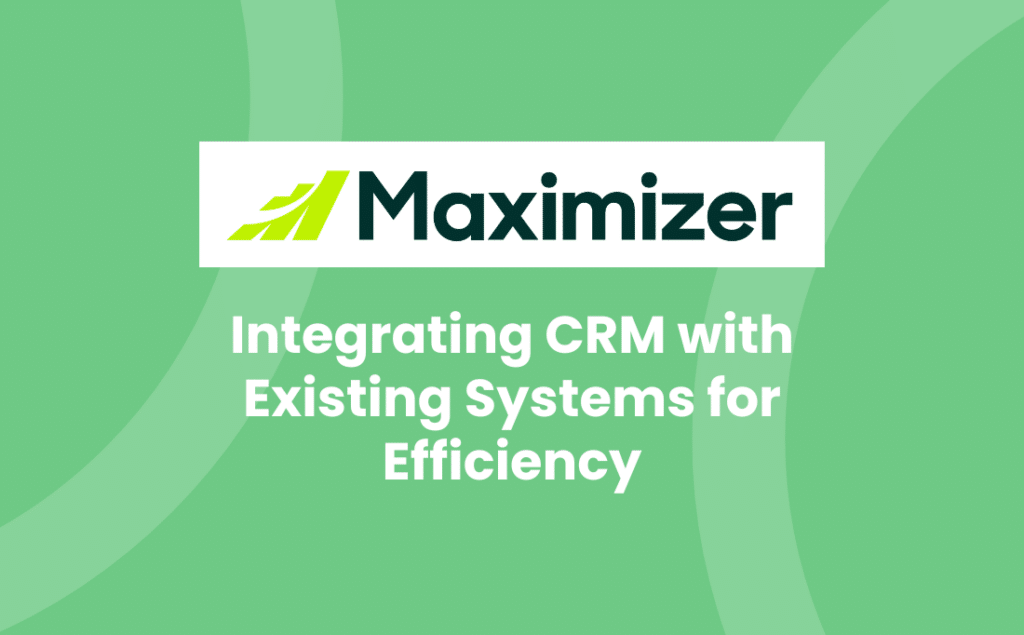Integrating your Customer Relationship Management (CRM) system with existing systems isn’t just a luxury—it’s a necessity. Seamless integration can streamline operations, enhance customer experiences, and provide valuable insights that drive growth.
You might wonder how to effectively merge your CRM with other tools you already use. From accounting software to marketing platforms, the right integration strategy can transform isolated data into a cohesive powerhouse of information. Let’s explore how you can achieve this synergy and make the most out of your CRM investment.
Key Takeaways
- Streamlined Operations: Integrating CRM with existing systems reduces manual data entry and errors, enhancing workflow efficiency.
- Enhanced Customer Insights: Consolidated data offers a comprehensive view of customers, enabling better decision-making and a more personalised service.
- Improved Collaboration: Integrated platforms facilitate seamless communication among departments, boosting teamwork and productivity.
- Scalable Solutions: Customisable integrations can evolve with your business needs, ensuring long-term viability and adaptability.
Understanding CRM Integration
Integrating CRM with existing systems is crucial for achieving streamlined operations in the manufacturing industry. Utilising Avrion’s digital transformation services with Maximizer CRM enhances efficiency and customer satisfaction further.
Benefits of CRM Integration
Integrating Maximizer CRM with your current systems offers several benefits:
- Streamlined Operations: Syncing data between systems reduces manual entry and errors, improving workflow efficiency.
- Enhanced Customer Insights: Consolidated data provides a 360-degree view of customers, enabling better decision-making and personalised service.
- Improved Collaboration: Integrated platforms help seamless communication among departments, enhancing teamwork and productivity.
- Scalable Solutions: Customisable integrations grow with your business needs, ensuring long-term viability.
- Data Migration: Transferring data from legacy systems to a new CRM requires careful planning to avoid data loss or corruption.
- System Compatibility: Ensuring that existing software can communicate effectively with Maximizer CRM might necessitate additional middleware or custom solutions.
- User Adoption: Employees may resist change; comprehensive training programmes can mitigate this issue by demonstrating the benefits of the new system.
- Cost Implications: Initial setup costs for integration can be high, but the long-term gains in efficiency often justify this investment.
Key Considerations Before Integrating CRM
Integrating CRM with existing systems in the manufacturing industry demands careful planning. Prioritise understanding your current infrastructure and identifying potential integration points.
Assessing Current Systems
Evaluate your current systems to determine compatibility with Maximizer CRM. Look into your ERP, accounting software, and marketing platforms to identify any potential conflicts. Verify the data formats and communication protocols used by these systems. Conduct a thorough audit to highlight areas needing upgrades or replacements.
Identifying Integration Points
Identify key integration points that will deliver the most value. Focus on areas like customer data synchronisation, sales process automation, and inventory management. Ensure that critical touchpoints between systems are seamless for real-time data flow. By pinpointing these integration points, you can streamline operations and enhance decision-making capabilities.
Visit Avrion’s Maximizer CRM Solutions for more details on how we can assist in your digital transformation journey.
Strategies for Successful CRM Integration
Integrating a CRM with your existing systems can significantly enhance operational efficiency and customer satisfaction. Focusing on the manufacturing industry, here are some effective strategies to consider when integrating Maximizer CRM.
Choosing the Right CRM Software
Selecting the right CRM software is crucial for seamless integration. Maximizer CRM offers robust features tailored for manufacturers, such as sales process automation and customer data consolidation. Evaluate your business needs and ensure that the chosen CRM aligns with your existing digital infrastructure. Check compatibility with current tools like accounting software, ERP systems, and marketing platforms to avoid integration issues.
Data Synchronisation and Security
Effective data synchronisation ensures real-time information flow between systems. With Maximizer CRM, you can automate data updates across platforms, reducing manual input errors. Focus on secure data transfer protocols to protect sensitive information during integration. Carry out encryption methods and regular security audits to safeguard against potential breaches. Ensure compliance with industry standards like GDPR to maintain trust and legal conformity.
By following these strategies, you can leverage Avrion’s digital transformation services to maximise the benefits of embedding Maximizer CRM into your manufacturing operations.
Reviewing Integration Tools and Technologies
Connecting CRM systems like Maximizer with your existing manufacturing systems involves selecting the right tools and technologies. This section explores APIs, middleware, and custom solutions versus off-the-shelf software to help you make a well-informed choice.
APIs and Middleware
APIs (Application Programming Interfaces) enable different software applications to communicate seamlessly. Middleware (sometimes called Integrated Software) acts as a bridge, facilitating data exchange between CRM systems like Maximizer and your existing manufacturing systems. By using APIs, you can ensure real-time data synchronisation, enhancing operational efficiency. Avrion offers digital transformation services that leverage robust APIs to integrate Maximizer with ERP, accounting, and other enterprise systems, ensuring a smooth data flow without disrupting your current infrastructure.
Custom Solutions vs Off-the-Shelf Software
Choosing between custom solutions and off-the-shelf software depends on your specific needs. Custom solutions offer tailored functionalities that align perfectly with your business processes but require more time and investment for development. On the other hand, off-the-shelf software provides ready-made features that can be quickly deployed but might need adjustments to fit your unique requirements.
Maximizer CRM offers flexible integration options supported by Avrion’s digital transformation services. If you opt for custom integration, Avrion’s experts will design bespoke solutions, ensuring seamless compatibility with your manufacturing systems. For those preferring off-the-shelf integrations, Avrion can efficiently carry out pre-built connectors for Maximizer CRM to integrate it with various enterprise applications.
By choosing the right tools and technologies for CRM integration, you can significantly enhance productivity and customer satisfaction in your manufacturing operations.
Conclusion
Integrating CRM with your existing systems isn’t just a technical upgrade; it’s a strategic move that can transform your business operations. With the right approach and tools, like those offered by Avrion, you can unlock significant improvements in efficiency and customer satisfaction. The case studies of companies like XYZ Manufacturing and ABC Electronics clearly illustrate the tangible benefits of such integrations.
By choosing the right software, ensuring data synchronisation, and prioritising security, you’re setting up your business for success. Whether you’re looking to streamline operations or enhance sales processes, integrating Maximizer CRM can be a game-changer. Take note of the expertise available to help you navigate this journey; it can make all the difference in achieving seamless integration and reaping its full benefits.
Frequently Asked Questions
What are the main benefits of integrating CRM with manufacturing systems?
Integrating CRM with manufacturing systems leads to enhanced efficiency, improved customer satisfaction, streamlined operations, optimised sales processes, and overall better business performance.
What factors should be considered when selecting CRM software for integration?
Key considerations include compatibility with existing systems, ease of data synchronisation, robust security features, and the ability to support future growth.
How does data synchronisation impact CRM integration in manufacturing?
Effective data synchronisation ensures real-time information flow between CRM and manufacturing systems, leading to more informed decision-making and improved operational efficiency.
Why is security important in CRM integration?
Security is crucial to protect sensitive customer and operational data from breaches and ensure compliance with industry regulations.


